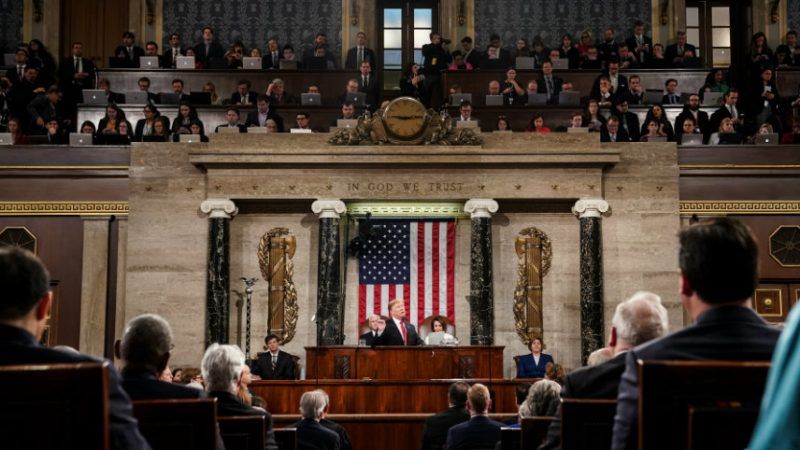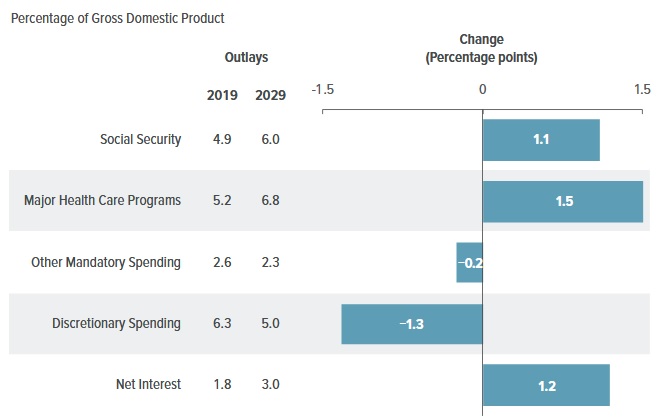What Was Missing From Trump's State of the Union? America's $1 Trillion Deficit
Or the $22 trillion (and counting) national debt. Or the entitlement programs that will continue adding to them.

America is running a near-record deficit despite close to a decade of continuous economic growth—and the nation's $22 trillion national debt is on a trajectory that will see it reach 93 percent of the nation's economy by the end of the next decade, higher than it was during World War II (and far beyond that in the decades to come).
That's the kind of problem that you might expect to be part of a serious and significant policy speech like the annual State of the Union address. But there was no mention Tuesday night of the urgent need to bring federal spending in line with tax revenue, and no discussion of how to curb the long-term growth of entitlement programs. About the only mention of spending at all, in fact, was a promise to "outspend" China militarily.
The Congressional Budget Office now says that America won't run a $1 trillion deficit until 2020—after some earlier projections estimated we'd hit that mark in the current fiscal year—but the temporary reprieve means little. While discretionary spending is set to decline by 1.3 percent over the next 10 years, the entitlement programs of Social Security, Medicaid, and Medicare, and the interest on the national debt, will continue to push the deficit higher.

The decision to steer clear of the federal budget in Tuesday night's State of the Union address was not a mistake. Asked earlier on Tuesday about whether Trump would discuss the national debt in the speech, Chief of Staff Mick Mulvaney—the same Mick Mulvaney who made his name in Congress as a budget hawk—reportedly told reporters that "no one cares."
The deficit is not a sexy issue and it's not something that's likely to get solved quickly. It doesn't make for a good soundbite. And, of course, talking about something in the State of the Union Address is not the same as actually doing something.
Still, the talking matters. Acknowledging the size of the problem is a first step towards tackling it, and Trump refused to take that step on Tuesday night. It's unlikely Congress will act without considerable prodding—or until the debt becomes too large for the economy to bear, something that might happen by the end of the next decade, when the national debt will near the size of the economy as a whole.
Indeed, if the policies outlined in Trump's State of the Union address were to become reality, it would likely be bad news for the federal budget deficit. He promised to spend more money on the military (including on nuclear weapons), and to build his coveted border wall. Still, to be fair to the president, there have been many, many State of the Union speeches that have promised more spending—and rarely is deficit reduction on the menu. It's also not difficult to imagine a future Democratic president using the State of the Union to call for Medicare for All, which would only compound the entitlement spending that's driving much of the deficit.
Our days of being able to ignore the national debt and the entitlement programs continue to tick away.


Show Comments (51)